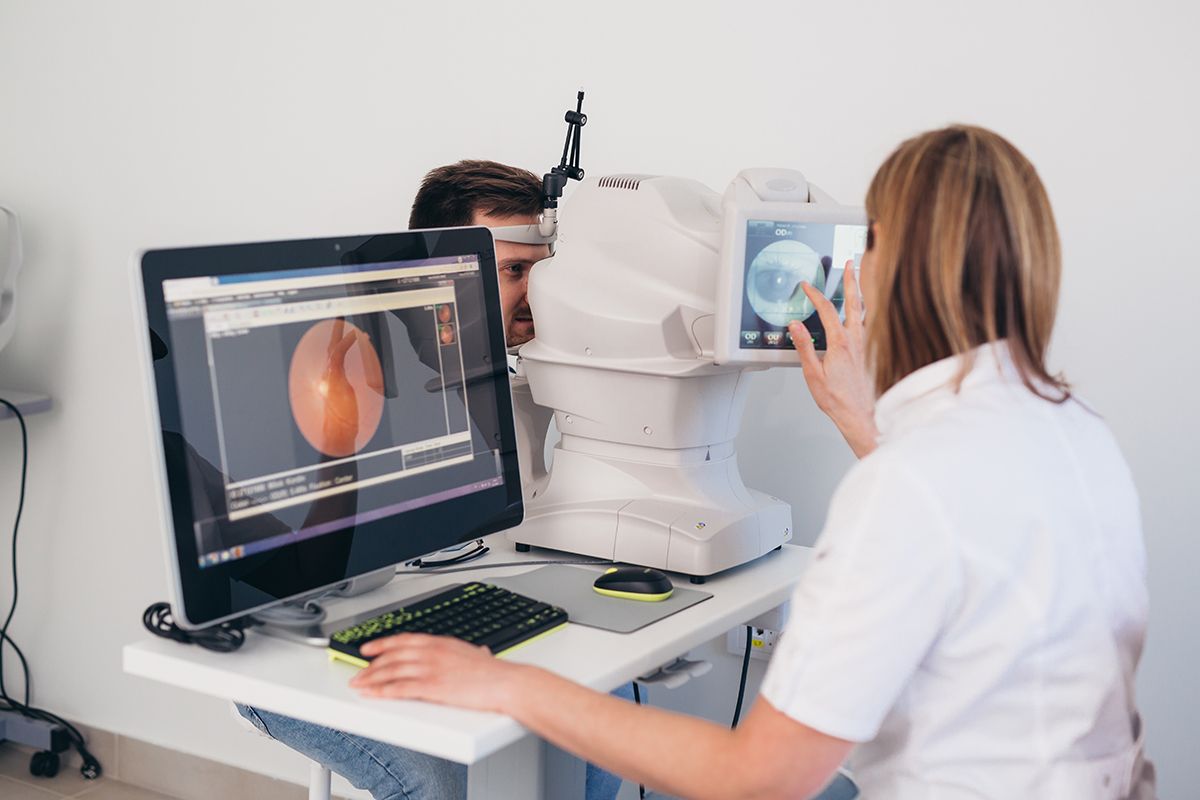Retinal Tears: What To Expect From Treatment and Recovery
Submitted by Elman Retina Group on January 16, 2023

Elman Retina Group’s Our doctors are experts at diagnosing and treating retinal tears. Below, our doctors discuss what to expect during and after the treatment of retinal tears.
What Are Retinal Tears?
Retinal tears are actually a common condition. The retina is the layer of tissue at the back of the eye. A retinal tear is a small rip in the retinal tissue. A tear means the retina is not fully detached, but parts of the retina are no longer attached to the back of the eye. Retinal tears occur when changes in the eye create a pulling effect on the retina.
Retinal tears can actually lead to retinal detachment. Retinal detachment is a serious condition that requires immediate medical attention. If a detached retina is not repaired promptly, it can cause blindness.
Retinal Tear Symptoms
Before a retinal tear can be treated it has to be diagnosed. If you are experiencing symptoms of a retinal tear, you should schedule an appointment to have your retinas examined by the experts at Elman Retina Group. Retinal tear symptoms include the following:
- Flashers
- Eye Floaters
- Eye swelling
- Eye pain
- Eye movement issues
- Headaches
Retinal Tear Treatment
If you have a retinal tear, your eye doctor will discuss your treatment options with you. Elman Retina Group offers two safe and effective treatment options for retinal tears. These treatments are fast outpatient procedures. This means that you can go home after the treatment is finished.
The experts at Elman Retina Group can treat a retinal tear with either laser surgery or cryopexy. During laser surgery, tiny amounts of scar tissue are created to seal up the retinal tear. Cryopexy freezes the torn part of the retina to prevent the tear from getting bigger.
Keep in mind that some minor retinal tears do not require treatment. These tears must be regularly monitored by your eye doctor to ensure that they do not pose a risk to your health and vision. If the tear does grow, it may necessitate treatment.
It is usually best to have a retinal tear treated early. Patients risk vision loss and the need for extensive surgery if they put off retinal tear treatment.
Retinal Tear Recovery
Your recovery after retinal tear treatment depends on a number of factors. The good news is that both treatment options should cause minimal discomfort. In most instances, recovery takes one to four weeks. During recovery, you should focus on letting your eye heal.
Your eye doctor should provide instructions regarding your recovery and downtime. The best thing you can do for your retinal tear recovery is to follow your doctor’s instructions.
Contact Elman Retina Group for Retinal Tear Treatment
Contact Elman Retina Group if you or your doctor suspects that you have sustained a retinal tear. Call or email us today to schedule an appointment with our doctors.



